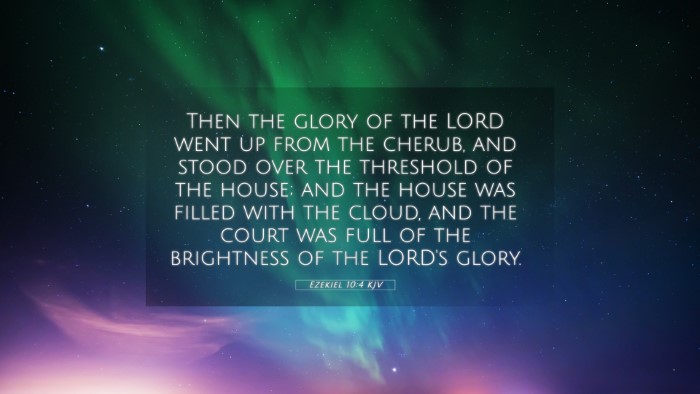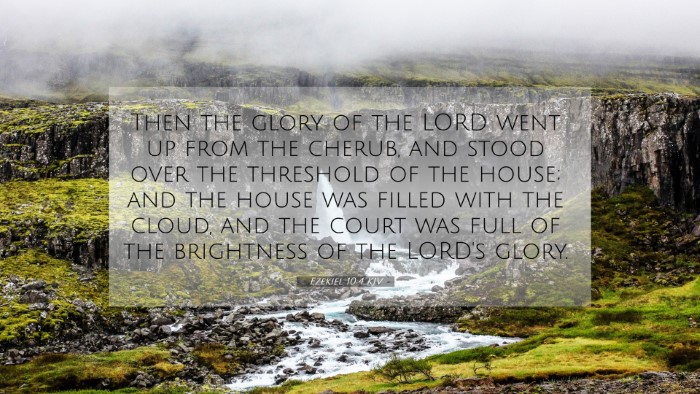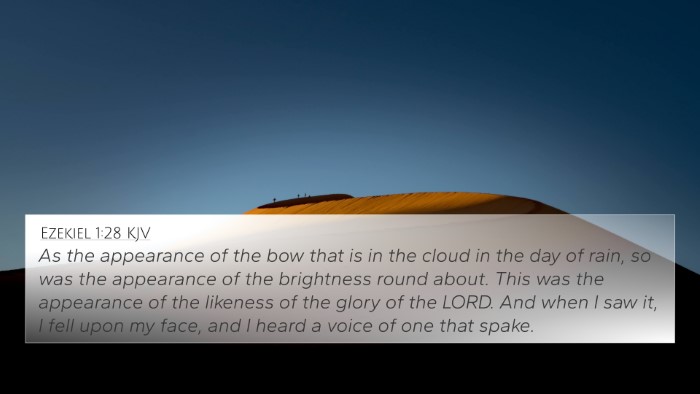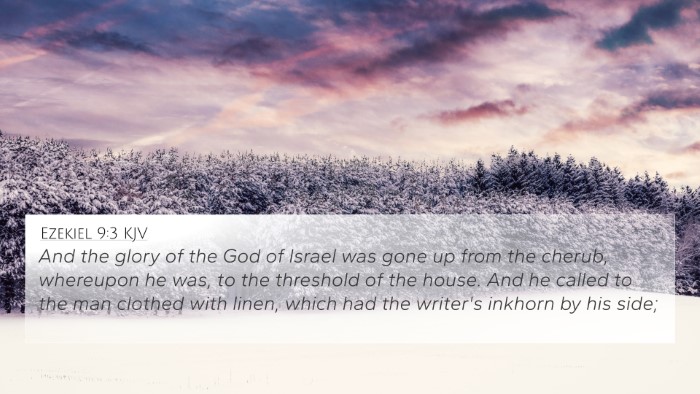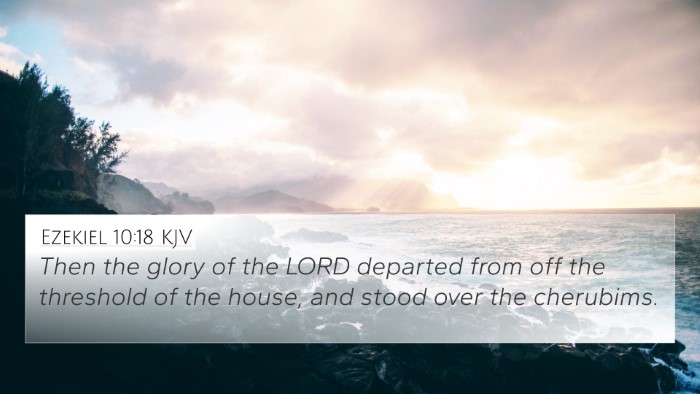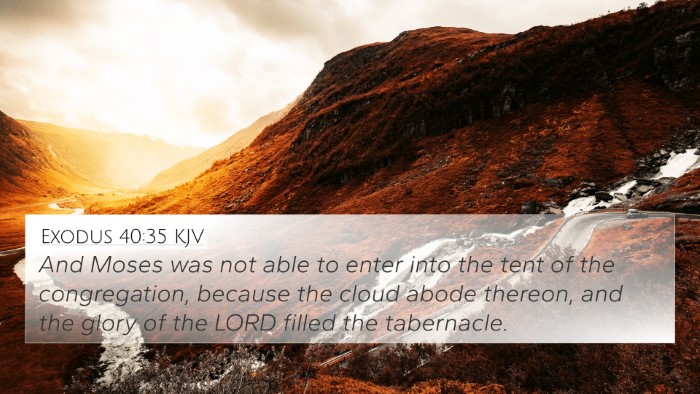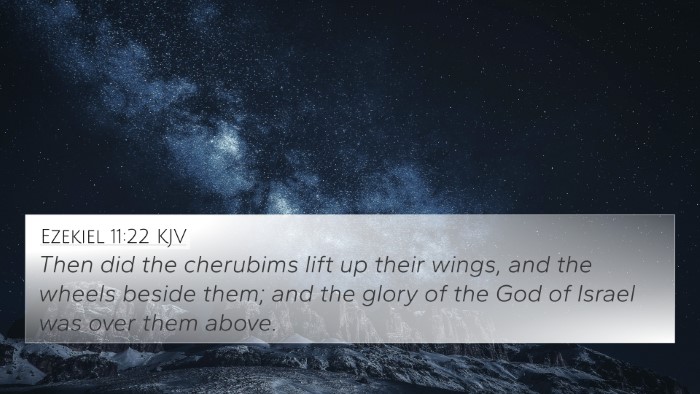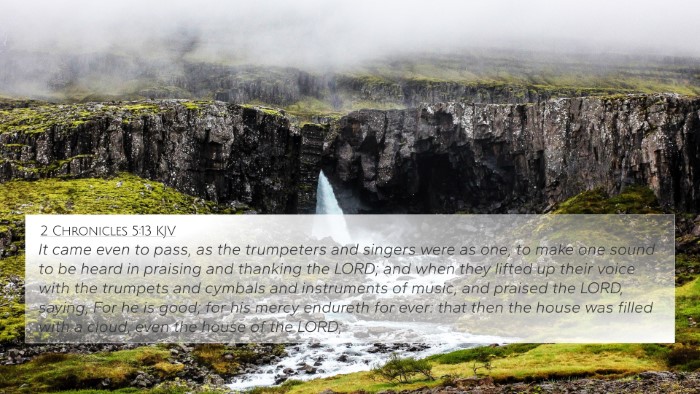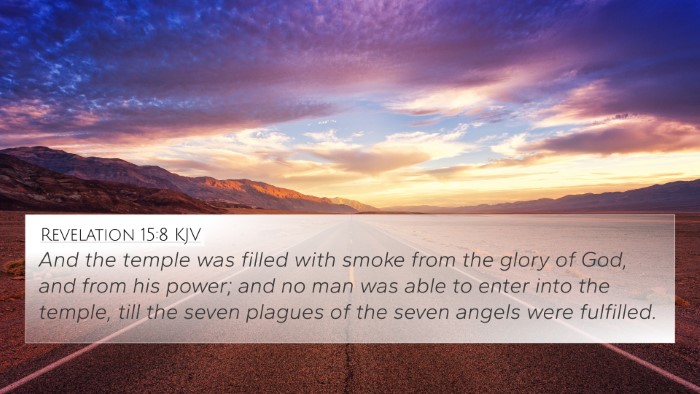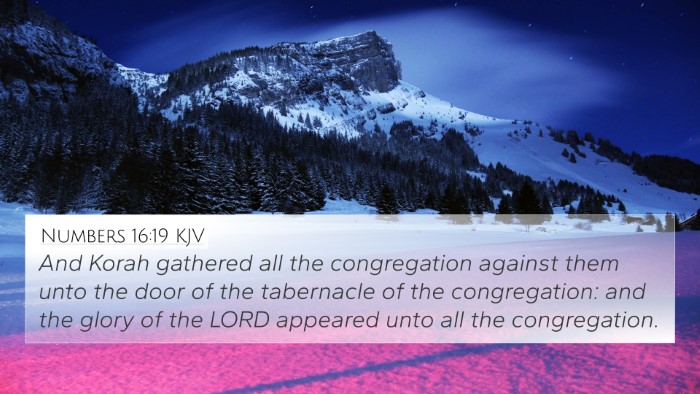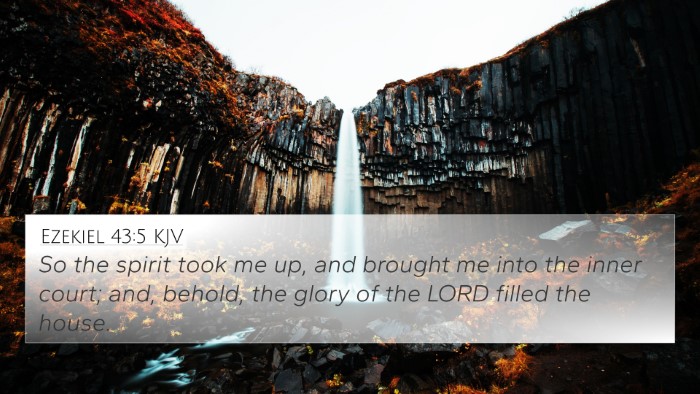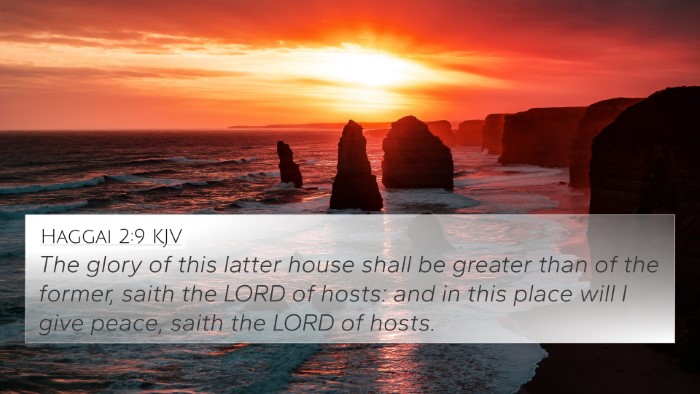Understanding Ezekiel 10:4
Ezekiel 10:4: “Then the glory of the LORD went up from the cherub, and stood over the threshold of the house; and the house was filled with the cloud, and the court was full of the brightness of the glory of the LORD.”
This verse depicts a powerful moment in the vision of the prophet Ezekiel. It illustrates the presence and glory of God as they depart from the temple. This theme resonates not only throughout the book of Ezekiel but also across other biblical texts, showcasing the connection between God's glory and His dwelling among His people.
Commentary Insights
Matthew Henry's Commentary
Henry emphasizes the significance of God’s glory departing from the temple, symbolizing judgment and the loss of divine favor. The cherubim represent heavenly beings tasked with guarding God’s holiness. Their movement suggests a transfer of divine presence, indicating a pivotal moment in Israel’s history.
Albert Barnes' Notes on the Bible
Barnes highlights the imagery of the glory of the Lord, which denotes God's majesty and power. He explains that the “cloud” represents God’s omnipresence, while the brightness signifies His holiness, illuminating the space. This scene is a foreshadowing of God’s eventual return and restoration of His people.
Adam Clarke's Commentary
Clarke delves into the prophetic implications of this vision. He asserts that the cloud signifies God’s protective and guiding presence among His people. The brightness of the glory illustrates God's divine attributes and the importance of His presence in the church. Clarke also draws parallels to other instances where God’s glory appears, signaling divine intervention.
Bible Cross-References
This verse can be cross-referenced with the following scriptures to explore its themes more comprehensively:
- Exodus 40:34-35: “Then the cloud covered the tent of the congregation, and the glory of the LORD filled the tabernacle.”
- Isaiah 6:1-3: “In the year that King Uzziah died I saw also the Lord sitting upon a throne, high and lifted up, and his train filled the temple.”
- Romans 8:18: “For I reckon that the sufferings of this present time are not worthy to be compared with the glory which shall be revealed in us.”
- Hebrews 9:5: “And over it the cherubims of glory shadowing the mercyseat; of which we cannot now speak particularly.”
- Revelation 21:23: “And the city had no need of the sun, neither of the moon, to shine in it: for the glory of God did lighten it, and the Lamb is the light thereof.”
- Psalm 96:6: “Honor and majesty are before him: strength and beauty are in his sanctuary.”
- Song of Solomon 5:10: “My beloved is white and ruddy, the chiefest among ten thousand.”
Thematic Bible Verse Connections
The connections between these verses display a continuum of God’s glory throughout the scriptures. From the establishment of God’s presence in the tabernacle in Exodus, to the heavenly visions in Isaiah and Revelation, we see a narrative thread that underscores the importance of God dwelling among His people.
Inter-Biblical Dialogue
This verse serves as a crucial link in understanding the overarching biblical theme of God's presence and glory. The movement of the cherubim and the subsequent filling of the temple with a cloud connects to the New Testament's revelations about Christ and the Holy Spirit’s role in believers' lives.
Cross-Referencing Bible Study
For those engaging in a deeper study of Ezekiel 10:4 and exploring how different verses relate to each other, employing tools for Bible cross-referencing, such as a Bible concordance or cross-reference Bible study guides, can yield a richer understanding of scripture. These tools can help identify connections not only between the verses mentioned but also across various themes within the Bible.
Conclusion
In conclusion, Ezekiel 10:4 serves as a solemn reminder of the importance of God’s glory among His people. The insights shared from various commentaries, along with the cross-references provided, allow for a comprehensive understanding of the themes of divine presence, judgment, and hope for restoration found within the scriptures.

